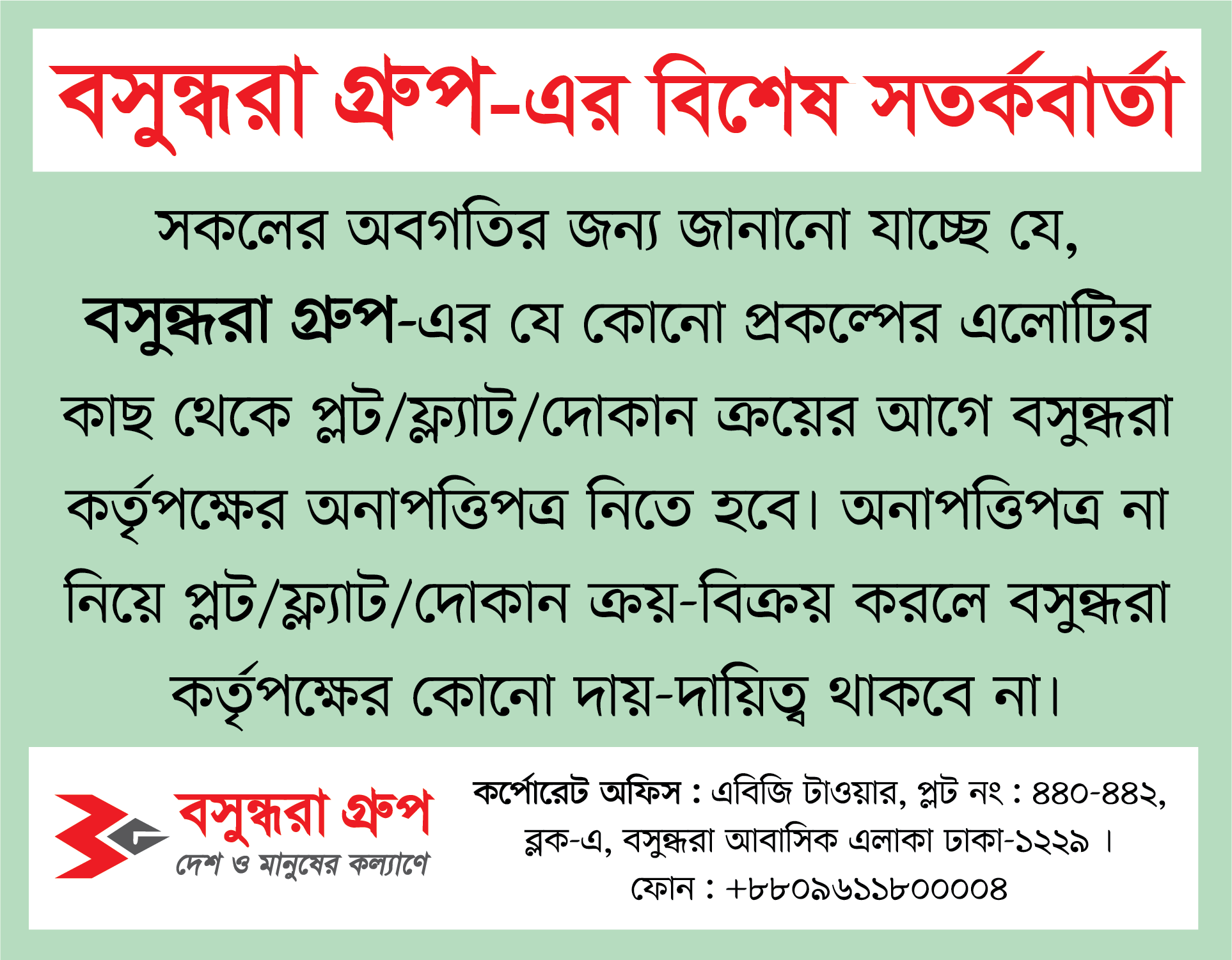Shah Alam Kabir

The proclamation of the charter of independence was made on April 10, 1971, and to implement the ideals of the charter, the courageous warriors had sacrificed their lives. However, since achieving the independence, the state has been operating by denying those ideals. The countries those have achieved independence through arms struggle, they have accepted the principles of the proclamation of independence as the philosophy of the state, and incorporated those as the basis of the constitution. Bangladesh is the only exception.
Bangladesh was founded on the sacrifice of millions of lives, huge struggle, and a thick layer of blood. The political document of the war of our freedom is the proclamation of the charter of independence. And of course which is our pride. The ideals of the proclamation sailed across the land of 56 thousand square milses. And only to establish those ideals, millions had sacrificed their lives. Among other nations who had the same kind of declaration, and had to go through the arms struggle for freedom, the principles of the proclamation of the charter of Bangladesh was the topmost. And that proclamation was the first interim constitution of the country. Undoubtedly, that was the first official document for establishing an independent sovereign Bangladesh. The declaration of independence is the most important component of a nation state. During the war of liberation, in establishing Bangladesh as an independent state;two most important issues came up at the final stage: making the charter of independence, and based on that formation of government and command the war. The proclamation of the charter of independence is the most important component of building a nation.

To empower the elected representatives of Bangladesh, on April 10, 1971 the charter of independence was declared by the government established at Mujibnagar. In that charter, in order to establish the legal rights of the people against the betrayal and unjust war waged by the Pakistan authority, the independence was declared based on Bongobandhu Sheikh Mujibur Rahman’s self-rule. The charter also strongly endorsed the earlier proclamation of independence made by Bongobondhu Sheikh Mujibur Rahman. The most significant element of the charter was to make it crystal clear, “what would be the founding ideals of the state liberated through the freedom struggle”.

It is stated in the charter that, “The independence of the sovereign People’s Republic of Bangladesh is hereby declared to ensure the equality, human dignity, and social justice for the people of Bangladesh”. That means, these three ideals: Equality, Human Dignity, and Social Justice will be the philosophy and ideals of the state liberated through the freedom fight.
To express the fundamental spirit or ideals three words were used in the French revolution, and that was followed by other revolutions in different parts of the globe. Using three words to express an idea is an old form. A Tripartite Motto is the conventional English term for a motto. English philosopher John Locke argued that the law of nature obliged all human beings not to harm “the life, liberty and property of others”. Following this motto Tomas Jefferson introduced three fundamental principles in the charter of the independence of the USA: Life, Liberty, and Pursuit of Happiness. The introductory phrase of the Canadian constitution is: Peace, Order and Good Government. The phrase “Peace Land and Bread” was the basis of Russian Revolution. “Unity, Justice and Freedom” is the motto of modern Germany. “Peace, Order and Good Government” are the state ideals of Australia, New Zeeland and South Africa. The state ideals of Vietnam are: Democracy, Justice and Civilization. The basic ideals of the French Revolution: Liberty, Equality and Fraternity became the part of preamble of the France constitution, and these three ideals are the state philosophy on which the state should run.
The fundamental principles of the charter of independence of Bangladesh: Equality, Human Dignity and Social Justice have neither been mentioned in the preamble nor anywhere of the constitution of Bangladesh. The state will be founded on the ideals of the charter of independence, and that was the contract with the blood of the martyrs. The heroes have sacrificed their lives for those principles. And for which the ideals can never be changed, altered, replaced or avoided. It was very much necessary to run the state based on those principles, but unfortunately, the state has been running with the policy without principles. Since the state policy was introduced without the principles, now neither the policy nor the principles are being followed. As a result, the state is heading towards a dangerous situation. The administration of the country opposing the principles of the war of independence has become corrupt, wild, and blood sucking. The ways of the common people to survive have become shattered day by day. Thoughts to operate the state based on ideals, ethics and compassion have been dropped. Ideals cannot be changed, only policy and implementation process could be adjusted with the demand of the time. Withoutequality, human dignity, and social justice; independence is meaningless.
The suppressed nation felt from its bottom of heart, that to make the independence meaningful which ideals should be the basis of our ethical foundation. An universal philosophy of ideals are deep rooted in the charter of the declaration of our independence. But the ideals of our freedom struggle were not imprinted in the mind of our nation. They were not diciminated, written in the history of the nation, or applied them as the foundation of statehood. The nation which took the oath to implement equality, human dignity and social justice, the nation which rose up with the dedication of touching the sky, and exposed with the power to materialise the dream; all were in vain in the beginning. The preamble of the constitution of 1972 ushered in the nation by overlooking the ideals of the war of liberation. In writing our constitution, the templets were followed none of those nations were the outcome of any revolution. The countries which had achieved their independence through war or revolution, the ideals of their charter have been incorporated in the preamble of their constitutions as the philosophy of the states. Moreover, the sacrifice, heroism, and the historical achievements have been mentioned in nutshells. For example, in the preamble of the constitution of Vietnam, the contribution of Ho Chi Minh is well mentioned, shortly described the historical events of 1946, 1959 in a chronological order. In the preamble of the constitution of Cuba, the sacrifice and struggle of the people in 1868, 1895, heritage and the legacy of heroism is well documented. Cuban philosopher-leader Jose Marty’s name is also mentioned there. In the preamble of Bangladesh constitution, the founder of our nation Bongobondhu Sheikh Mujib’s name is not mentioned. There is nothing mentioned about the historic language movement of 1952 in the constitution. Nonetheless the language movement is the founding spirit of our Bengali nationalism. And the 21st February, 1952 was the plantation of the seed of independence. The spirit of the language movement was the lifeblood of our liberation struggle. Not a single word was written about the heroic achievement of the movement in the preamble of our constitution. Even the historic day of March 2, 1971 on which the flag of Bangladesh was hoisted, or on March 3rd the reading of the resolution of independence, or, the historic speech of 7th March by Bongabondhu Sheikh Mujibur Rahman those have become the integral part of the existence of our nation, were not mentioned in the preamble of the constitution. Even nothing is mentioned about the horrific mass killings at thenight of March 25, 1971. As a result, the constitution of Bangladesh has failed to become a part of the legacy of our blood-bath independence.
The three phrases of the charter of the proclamation of our independence, “Equality, Human Dignity, and Social Justice” have reflected the aspiration of an independent nation. Ant the reflection is the ultimate outcome of the movements of 1952, 1969 and 1970-71.
The constitution of Bangladesh was written overlooking the urgency of the political philosophy and ideals of the war of liberation. Rather it followed the template of the colonial constitution. As a result, political philosophy based on the ideals of the war of liberation, structure of the state, future plan with vision; nothing were reflected in the constitution. There is no indication of establishing the great ideals of liberty, human dignity and social justice in the state mechanism. The people who talk about the spirit of the war of liberation, they just do leaving the ideals of the war. To keep the state-power in hand in 1972 the political decisions were taken without having any plan of establishing the ideals. The moral spirit, social commitment, and the unity of existence, that grew among the people during the war of liberation; were not taken in consideration by the state or the government. There was no plan how to construct the foundation of the state on the layer of blood. Rather the people have experienced how Bangladeshis were placed in position of the Pakistani state mechanism. There was no end of the suppressive colonial state system. War caused irreparable loss of lives and wealth, but no change in state system. The historic contributions of the people’s sacrifice were sold to the colonial administration. The spirit and ideals of the war of independence were stolen and removed beyond the knowledge of the people.The challenges we took to fight the exploitation, suppression and oppression, by denying those, the same oppressive state-rule was installed. To materialise the dream to establish equality, human dignity and social justice, we took part in the war of liberation, unfortunately, we have failed to do so. The three ideals of the war of liberation are inseparable and ultimate truth. There is no room to deform these ideals. The war of liberationhad the commitment of establishing equality, human dignity and social justice. But within a year of ending the war, the ideals were defeated and removed. Now it has become inevitable to establish the ideals of the war of liberation in our state-system. We must establish the state management with the philosophy of those three ideals.

